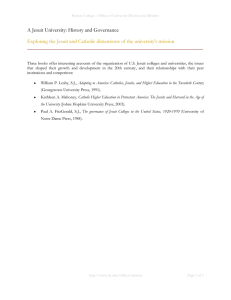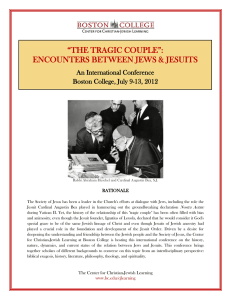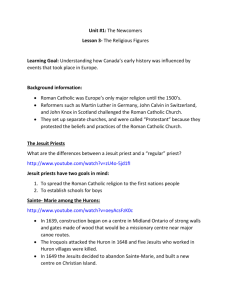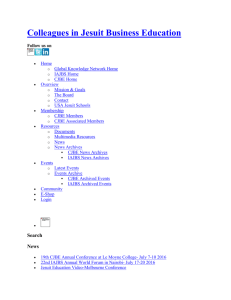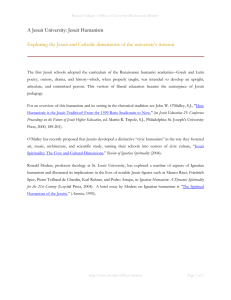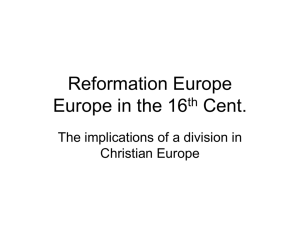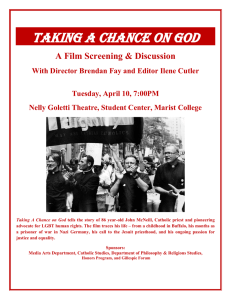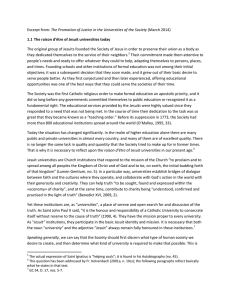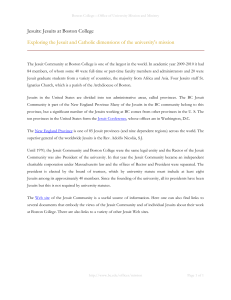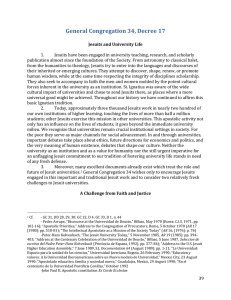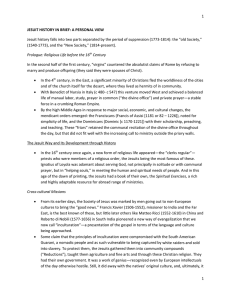A Jesuit University: Justice
advertisement
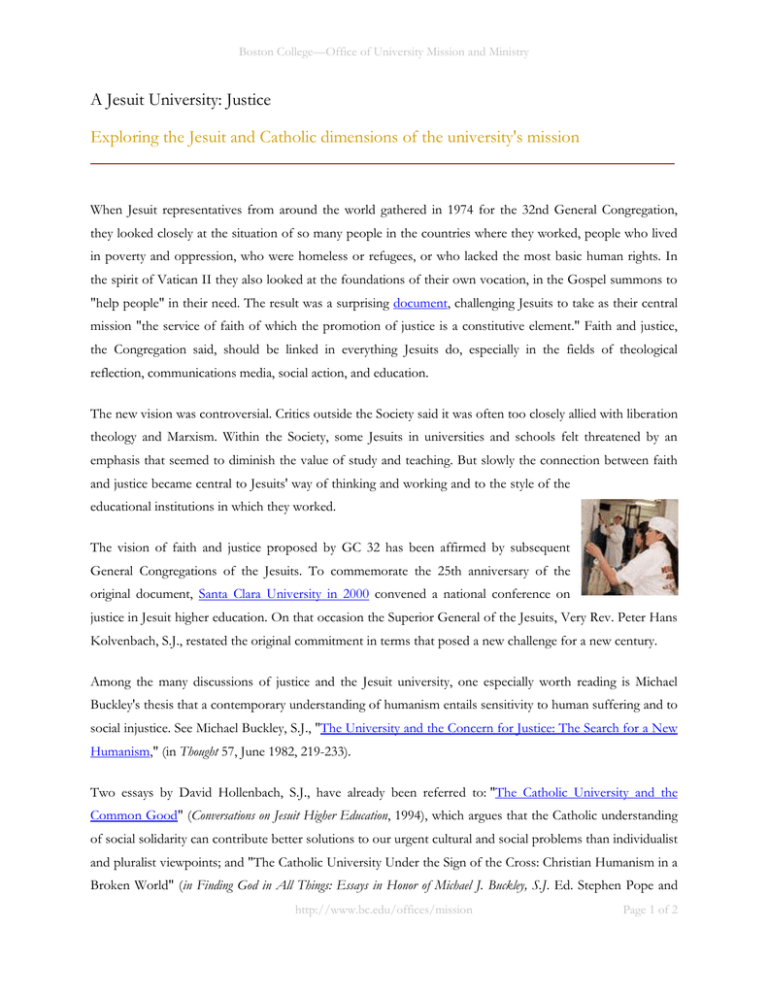
Boston College—Office of University Mission and Ministry A Jesuit University: Justice Exploring the Jesuit and Catholic dimensions of the university's mission When Jesuit representatives from around the world gathered in 1974 for the 32nd General Congregation, they looked closely at the situation of so many people in the countries where they worked, people who lived in poverty and oppression, who were homeless or refugees, or who lacked the most basic human rights. In the spirit of Vatican II they also looked at the foundations of their own vocation, in the Gospel summons to "help people" in their need. The result was a surprising document, challenging Jesuits to take as their central mission "the service of faith of which the promotion of justice is a constitutive element." Faith and justice, the Congregation said, should be linked in everything Jesuits do, especially in the fields of theological reflection, communications media, social action, and education. The new vision was controversial. Critics outside the Society said it was often too closely allied with liberation theology and Marxism. Within the Society, some Jesuits in universities and schools felt threatened by an emphasis that seemed to diminish the value of study and teaching. But slowly the connection between faith and justice became central to Jesuits' way of thinking and working and to the style of the educational institutions in which they worked. The vision of faith and justice proposed by GC 32 has been affirmed by subsequent General Congregations of the Jesuits. To commemorate the 25th anniversary of the original document, Santa Clara University in 2000 convened a national conference on justice in Jesuit higher education. On that occasion the Superior General of the Jesuits, Very Rev. Peter Hans Kolvenbach, S.J., restated the original commitment in terms that posed a new challenge for a new century. Among the many discussions of justice and the Jesuit university, one especially worth reading is Michael Buckley's thesis that a contemporary understanding of humanism entails sensitivity to human suffering and to social injustice. See Michael Buckley, S.J., "The University and the Concern for Justice: The Search for a New Humanism," (in Thought 57, June 1982, 219-233). Two essays by David Hollenbach, S.J., have already been referred to: "The Catholic University and the Common Good" (Conversations on Jesuit Higher Education, 1994), which argues that the Catholic understanding of social solidarity can contribute better solutions to our urgent cultural and social problems than individualist and pluralist viewpoints; and "The Catholic University Under the Sign of the Cross: Christian Humanism in a Broken World" (in Finding God in All Things: Essays in Honor of Michael J. Buckley, S.J. Ed. Stephen Pope and http://www.bc.edu/offices/mission Page 1 of 2 Boston College—Office of University Mission and Ministry Michael Himes. New York: Crossroad Publishing Company, 1996, 279-298), which proposes that the central lesson of the cross, compassion for the suffering of others, needs to be part of the university's humanism. A short, clear exposition of the scriptural basis for a concept of justice, is Richard J. Clifford, S.J., "Justice in the Bible," (in Jesuit Education 21: Conference Proceedings on the Future of Jesuit Higher Education, ed. Martin R. Tripole, S.J., Philadelphia: St. Joseph's University Press, 2000, 113-116). John R. Donahue, S.J., in What Does the Lord Require? A Bibliographical Essay on the Bible and Social Justice (St. Louis: Institute of Jesuit Sources, 2001) provides a useful critical bibliography on this topic. Blueprint for Social Justice is published monthly by the Twomey Center for Peace Through Justice at Loyola University of New Orleans and focuses on one social justice topic each month. The Lluis Espinal Foundation is a Study Center under the initiative of the Society of Jesus in Catalunya. It consists of a team of university professors and experts in theology and different social and human sciences, who are concerned with the increasingly important cultural interrelations between faith and justice. Their collection "Christianisme i Justicia" offers some of their findings. The Center of Concern in Washington, D.C. maintains a valuable website for Justice resources. http://www.bc.edu/offices/mission Page 2 of 2
